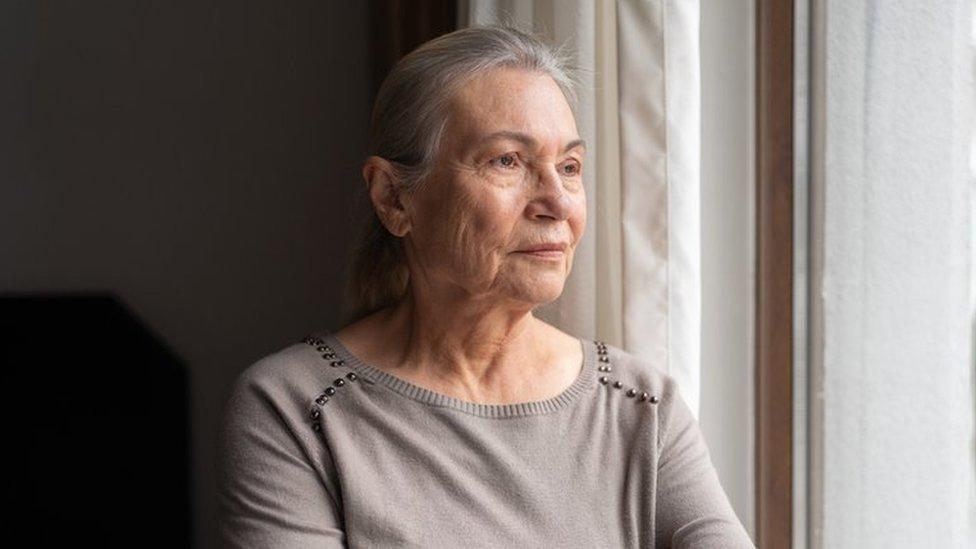Assisted dying bill: A relief or a slippery slope?
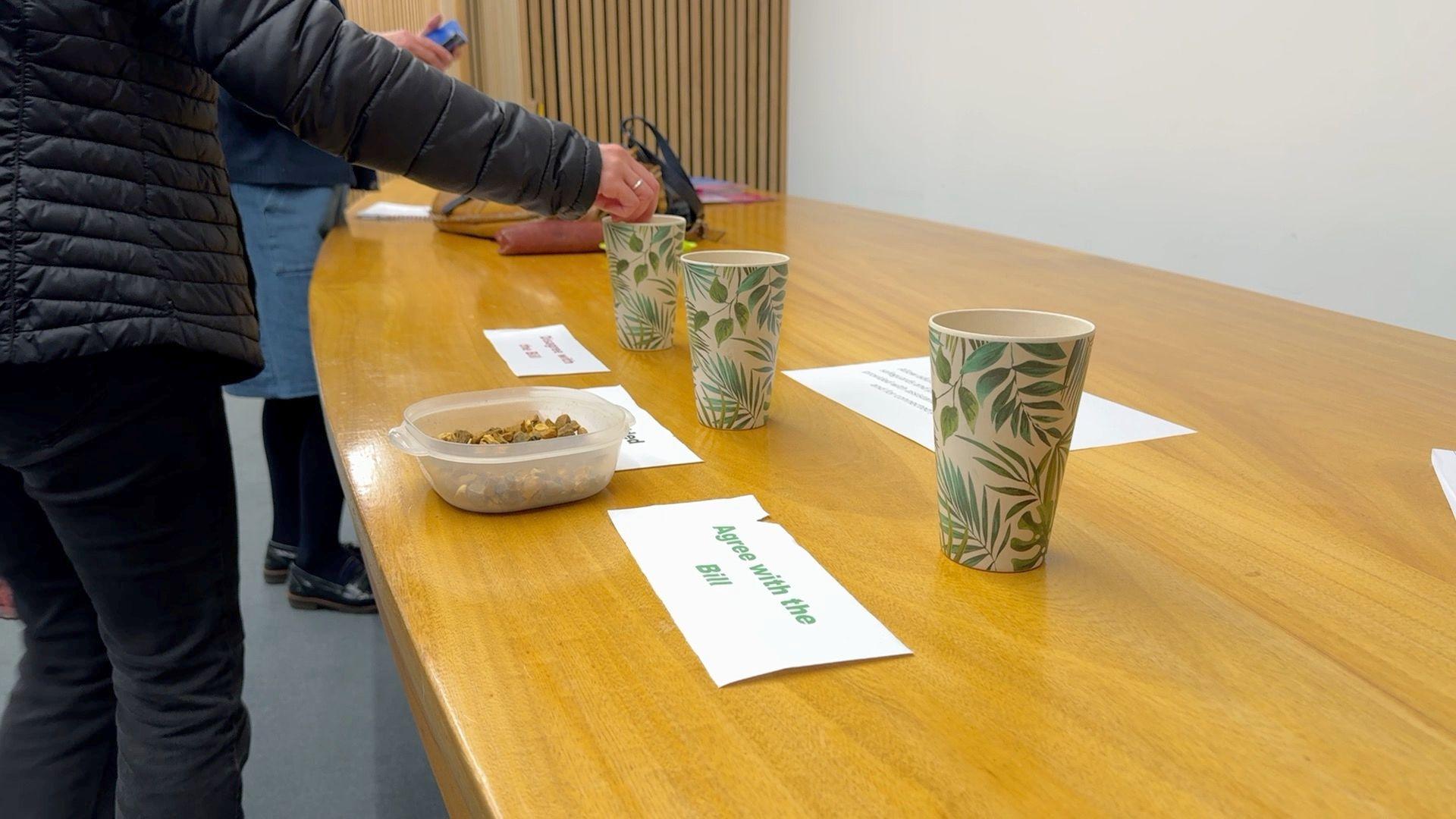
On arrival attendees were asked to vote whether they agreed, disagreed, or were undecided towards the assisted dying bill
- Published
Speakers with a range of religious, political and philosophical perspectives spoke in an, at-times, emotional event about assisted dying in Southampton.
MPs voted in support of a proposal to legalise assisted dying in England and Wales, in November 2024.
Months of detailed scrutiny and further votes in the Commons and Lords are required before the bill can become law.
In a discussion hosted by the Southampton Council of Faiths, Muslim, Sikh, Jain, Roman Catholic and Church of England speakers gave their views on assisted dying.
The audience also heard personal stories from people who had first-hand experience of making this most difficult of decisions.
One of these was from Eric Hyom, who questioned the proposal and asked how the bill would work properly when "people's minds can change".
Giving an account of his mother, who suffered from MS, he described how she said she wanted to die because of her quality of life, but then regarded her waking up from a coma as a "blessing".
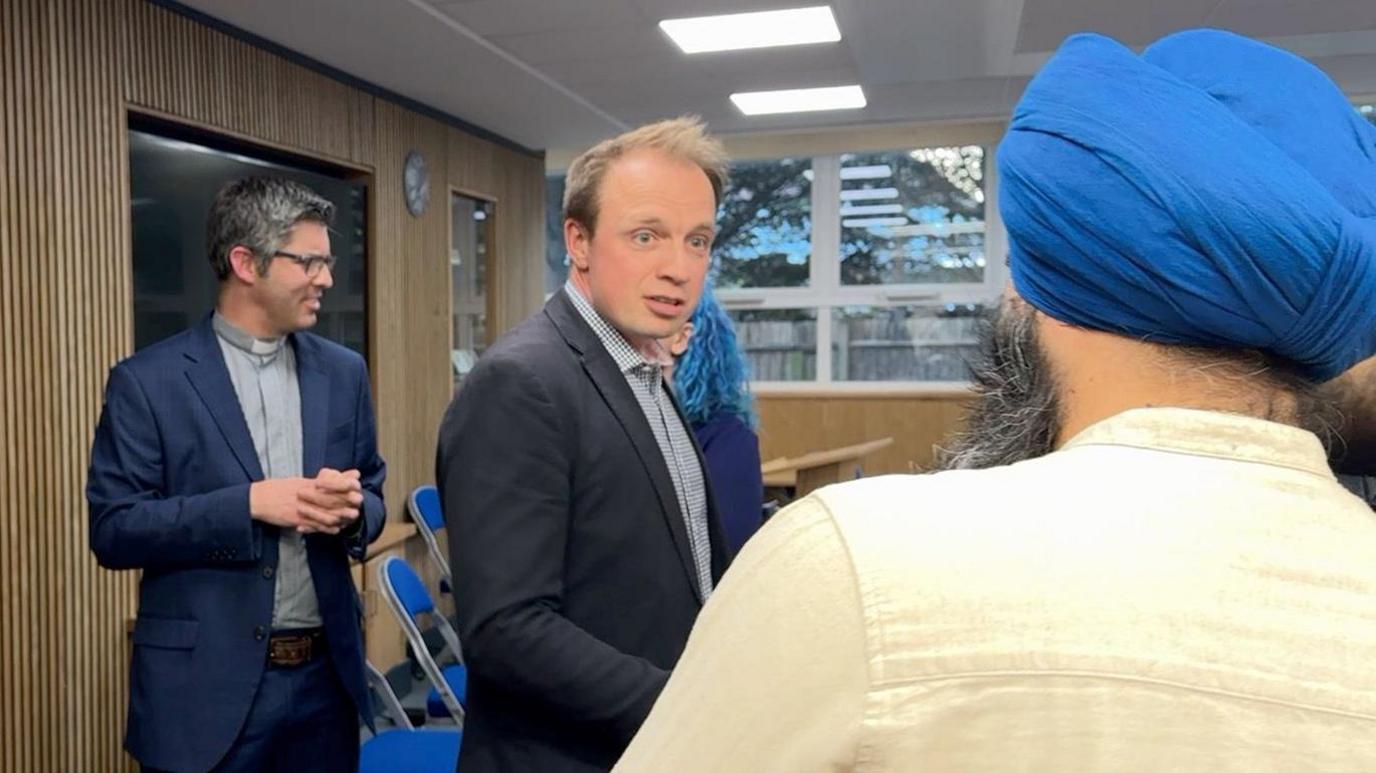
Southampton Itchen MP Darren Paffey - who voted against the bill in November - chaired the event
One lady gave the opposing perspective, describing her diagnosis with Huntington's disease as one of the reasons she chose to sign up to Dignitas.
"I did have faith, I don't have faith now. I have a terminal illness," she said.
"It's my choice for my death. I have become a member of Dignitas and it has taken a great relief off of me as I signed that paper."
Aiman Alzetani is a consultant cardiothoracic surgeon at Southampton Hospital and has worked with terminal patients in Gaza and Syria.
He said: "As a Muslim you don't own your body, you have been loaned this body for a period of time to get the best out of it."
The bill could be a "slippery slope", he argued, adding that "we are devaluing ourselves as a society when we commodify death".
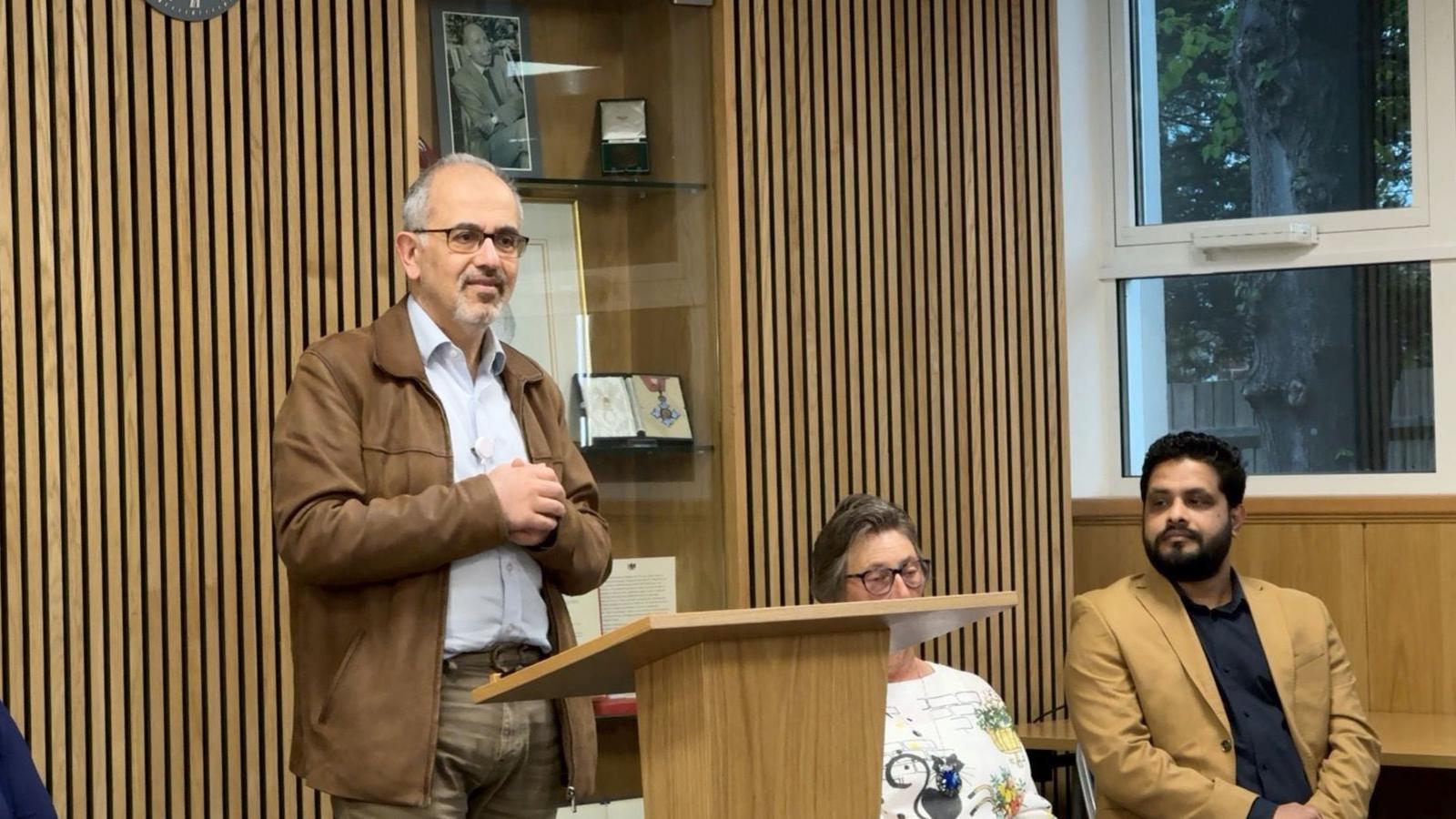
Aiman Alzetani believes the bill could be a "slippery slope"
Julian Hughes is an honorary professor at the University of Bristol and recently co-edited a book titled The Reality of Assisted Dying: Understanding the Issues.
He said that, while he is Roman Catholic, he preferred to take a non-religious approach to the argument against assisted dying.
"Equality will push the eligibility criteria to expand because people will say, if that group of people can have it, why can't I have it?"
He said an answer to the problems that people were facing could be palliative care.
Marie-Louise Papworth is treasurer for not-for-profit Dignity in Dying, which campaigns for assisted dying to be made legal.
With regards to palliative care, she argued the "system isn't working", adding: "All the talk we've heard today assumes we are in a good place or in an OK place, but we're not. We really are not."
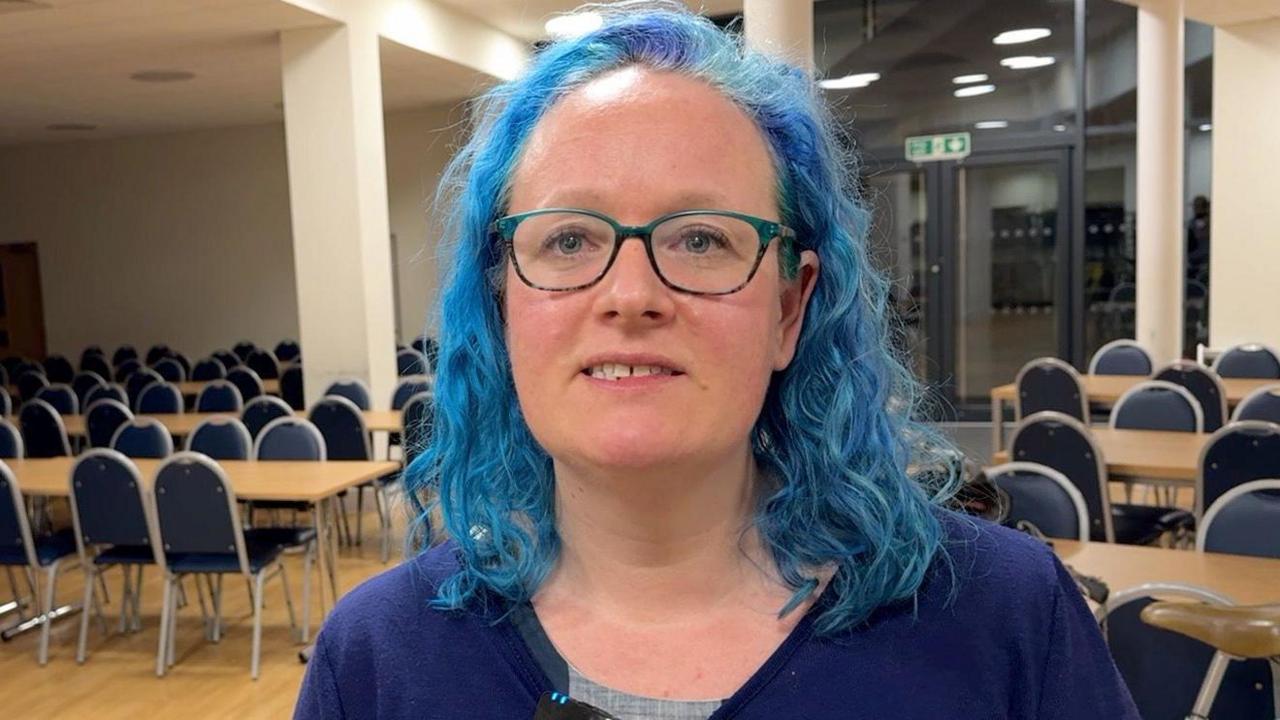
Prof Fiona Woollard gave her own criticisms of the event
Fiona Woollard is Professor of Philosophy at Southampton University and, after the event, she said she was worried the reasons that people had for seeking to exercise a right to die were not fully appreciated.
"I think that people's reasons for choosing an exercise to right to die are really much more complex than was perhaps always clear in tonight's debate," she added.
Get in touch
Do you have a story BBC Hampshire & Isle of Wight should cover?
You can follow BBC Hampshire & Isle of Wight on Facebook, external, X (Twitter), external, or Instagram, external.
